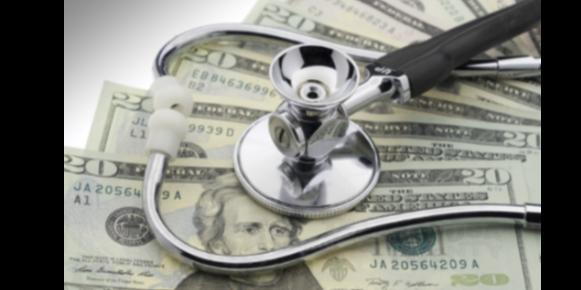
Hearing aids are small electronic devices that are fitted and customized to address different types of hearing loss. The hearing aids can provide the wearer to hear better in all types of environments whether it's quiet or noisy. Digital hearing aids contain microphones that pick up sound, a computer chip that amplifies and processes sound, and a speaker that sends the signal to your ear. Additional features available in advanced models include noise reduction, rechargeable batteries, wireless connectivity, variable programming, and remote controls. The types of hearing aids can be classified into two main product styles — in-the-ear (ITE) and behind-the-ear (BTE). Below we dive into the cost of hearing aids, if hearing aids are covered by insurance and how financing can help.
How much do hearing aids cost?
The average cost of hearing aids vary widely based on the device and level of technology but generally speaking they range in cost from $1000 to $6,000 a pair. The two biggest factors affecting the cost of hearing aids are features and professional services associated with the selection, fitting, adjustments, and overall maintenance of the hearing device.
Are hearing aid costs covered by insurance?
Hearing aids are generally not covered by medical insurance, though insurers sometimes offer plans that include coverage for hearing tests and fittings. You should check with your insurance provider to see what coverage may be available. Currently, there are about 5 states that mandate health insurance companies provide full or partial hearing aid coverage for adults (and 23 states with mandates for children), sadly PA is not one of them. If you live in a state that mandates coverage you’ll have to do a little research to find out how much is covered and how often a claim can be made, as well as other qualifiers for coverage. You can also check with your hearing care professional.
How can I pay for hearing aids?
If you are looking to purchase in-the-ear hearing aids and don’t have private medical insurance, live in a state where coverage is mandated, or need a way to pay for co-pays, deductibles, or other out-of-pocket costs there are several payment options you can consider. If you have the funds readily available, of course, you can tap into your savings. You may also be able to use a tax-free Health Savings Account (HSA) or Flexible Spending Account (FSA) to pay for the expenses. If you are interested in paying overtime, it’s important to know very few providers extend credit to patients through their practice where patients would receive bills from, and pay the provider. Almost all accept general-purpose credit cards and many accept the CareCredit credit card, which may be a convenient way to pay for the procedure.
Can I use my CareCredit credit card to pay for hearing aids?
Yes. If approved, you can use your CareCredit credit card at locations within the CareCredit network to finance hearing devices and other hearing care products. The benefit of using a CareCredit credit card is the opportunity to use promotional financing.* If approved, you can pay for the care you need immediately. You can also use your CareCredit card, again and again, to pay for other health, wellness, and vision care needs. Clark Audiology and Hearing Aid Center accepts the CareCredit credit card.
This content is subject to change without notice and offered for informational purposes only. You are urged to consult with your individual healthcare, business, financial, legal, tax and/or other advisors with respect to any information presented. Synchrony and its affiliates, including CareCredit (collectively, “Synchrony”), makes no representations or warranties regarding this content and accepts no liability for any loss or harm arising from the use of the information provided. Your receipt of this material constitutes your acceptance of these terms and conditions.
Click here to access the original article by CareCredit

